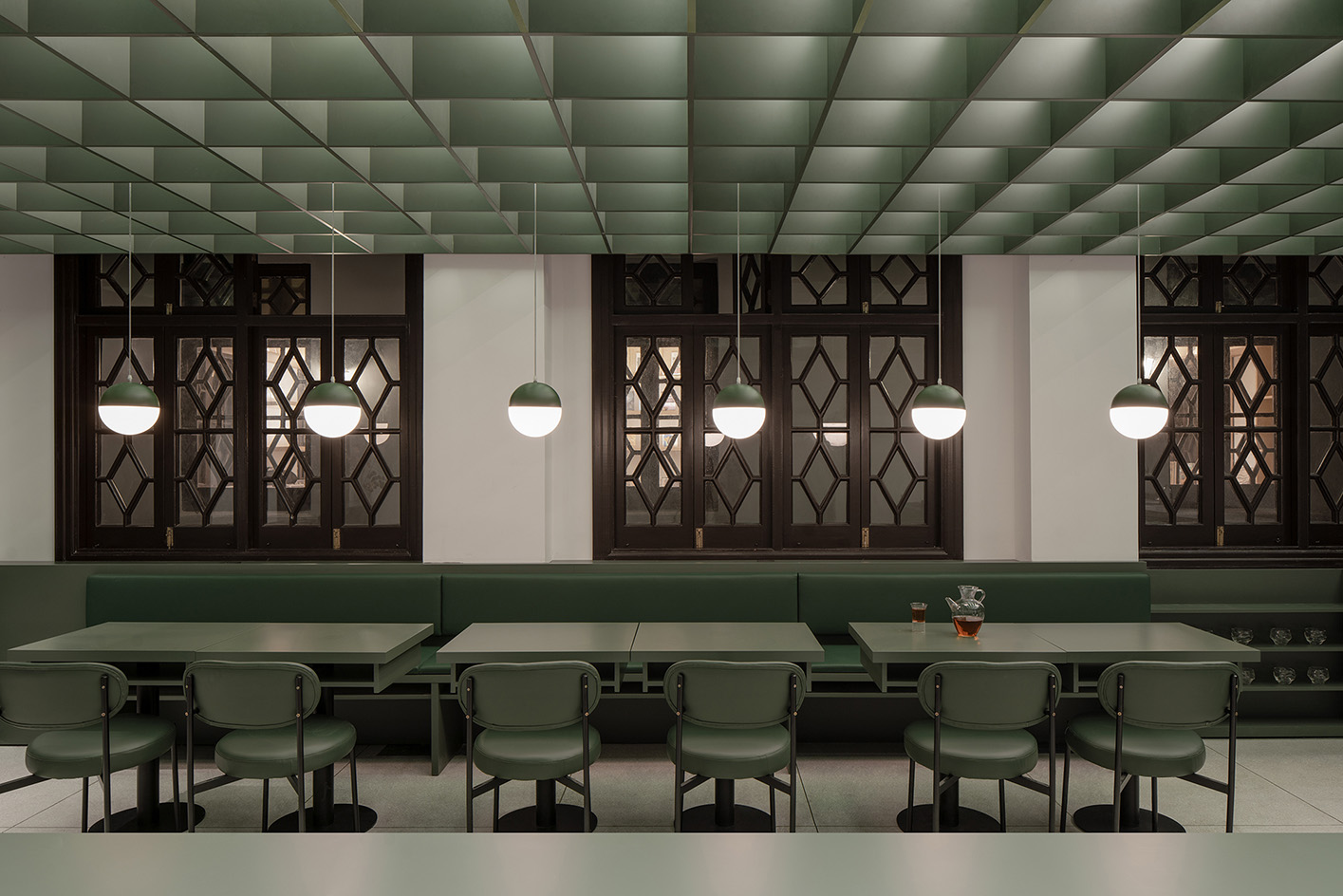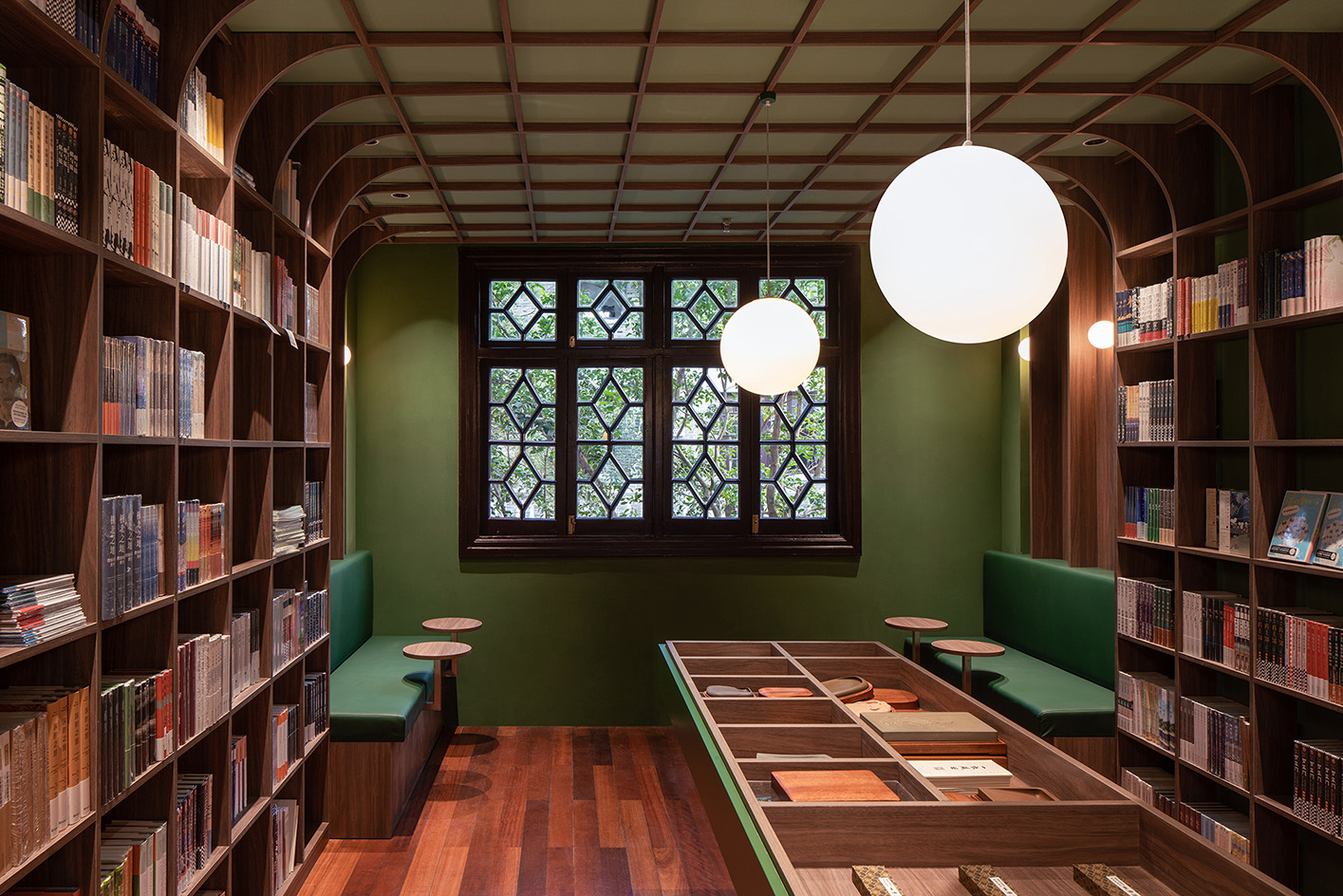
Zhang Taiyan's former residence has been reopened as a museum in the 20th-century Chinese scholar's home town of Suzhou. The interior, which will be accessible as a museum and historic attraction, is accompanied by a Gu Wu Xuan bookstore and café, designed by dynamic architecture studio Tsing-Tien Making – headed by architect Freja Bao.
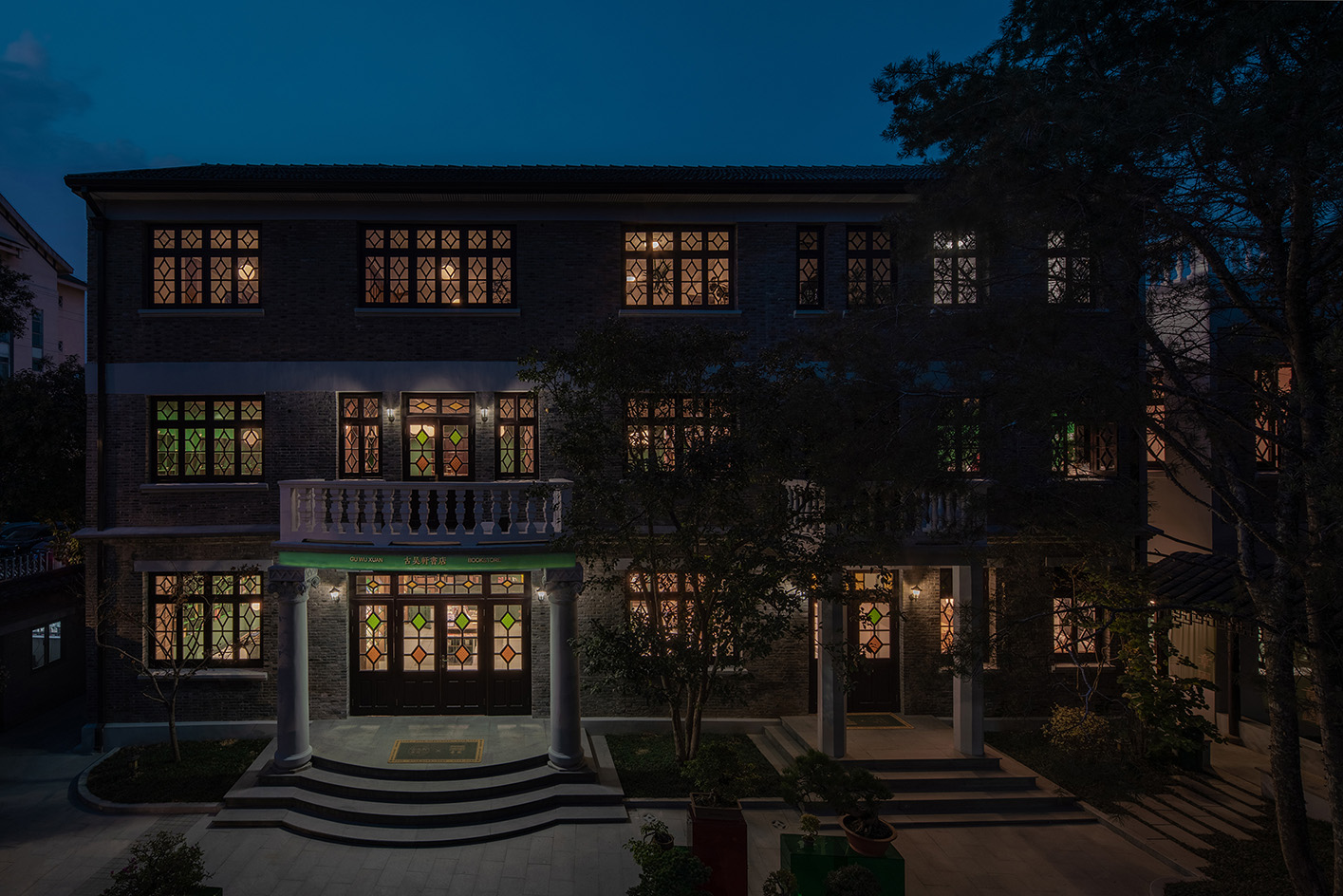
Zhang Taiyan’s house becomes a home for books
Also known as Zhang Garden, the former residence of Zhang Taiyan was built between 1911 and 1949 and comprises three buildings, surrounded by a green, walled garden. The southernmost structure was preserved as a museum, while the other two contain the extensive bookshop and its café and communal areas.
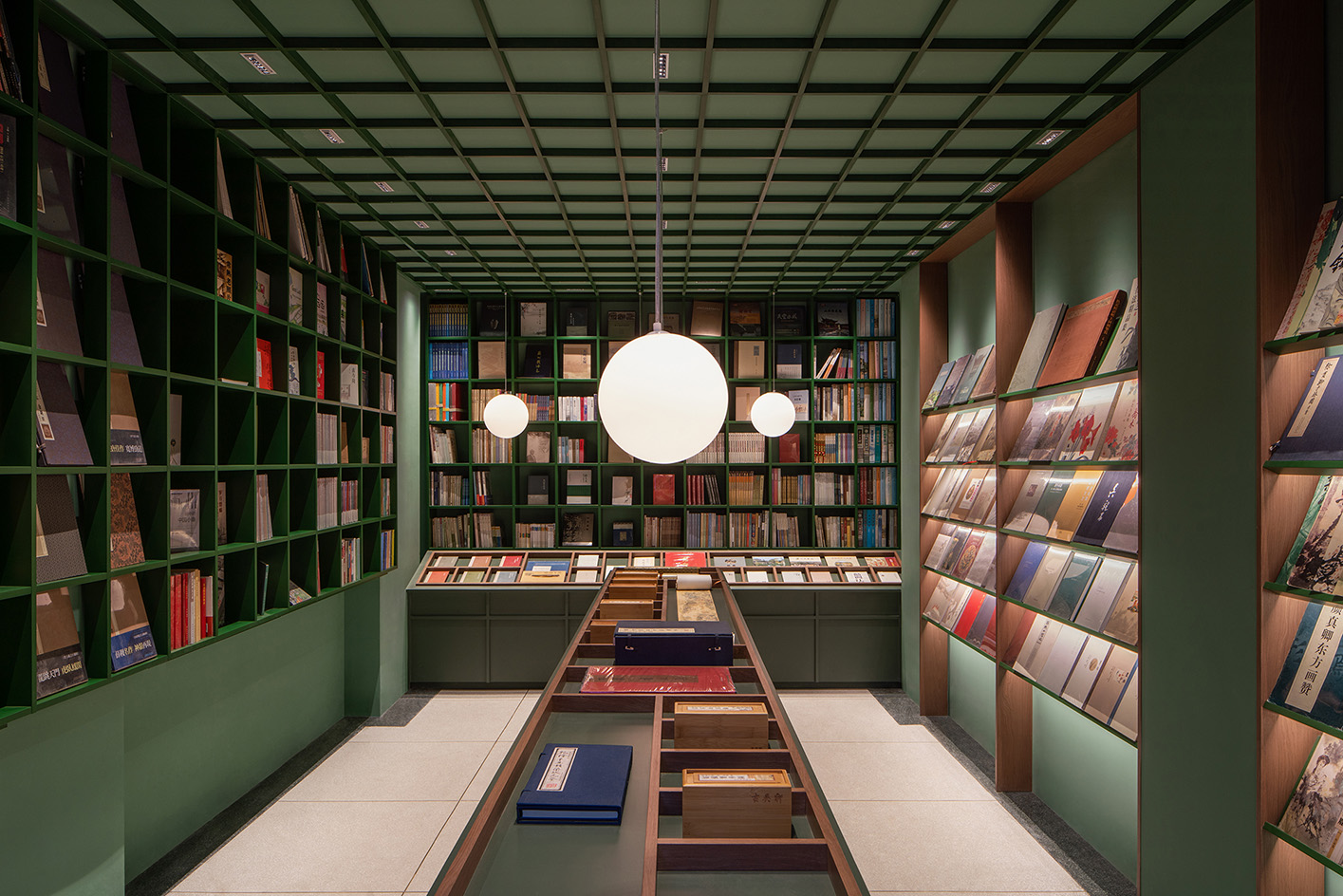
Within this setting Tsing-Tien Making worked on a design that draws on the setting's natural foliage tones, bringing a selection of shades of green into the composition. Materials blend timber in natural tones and metal, which was used in a modular manner in the shelving and displays.
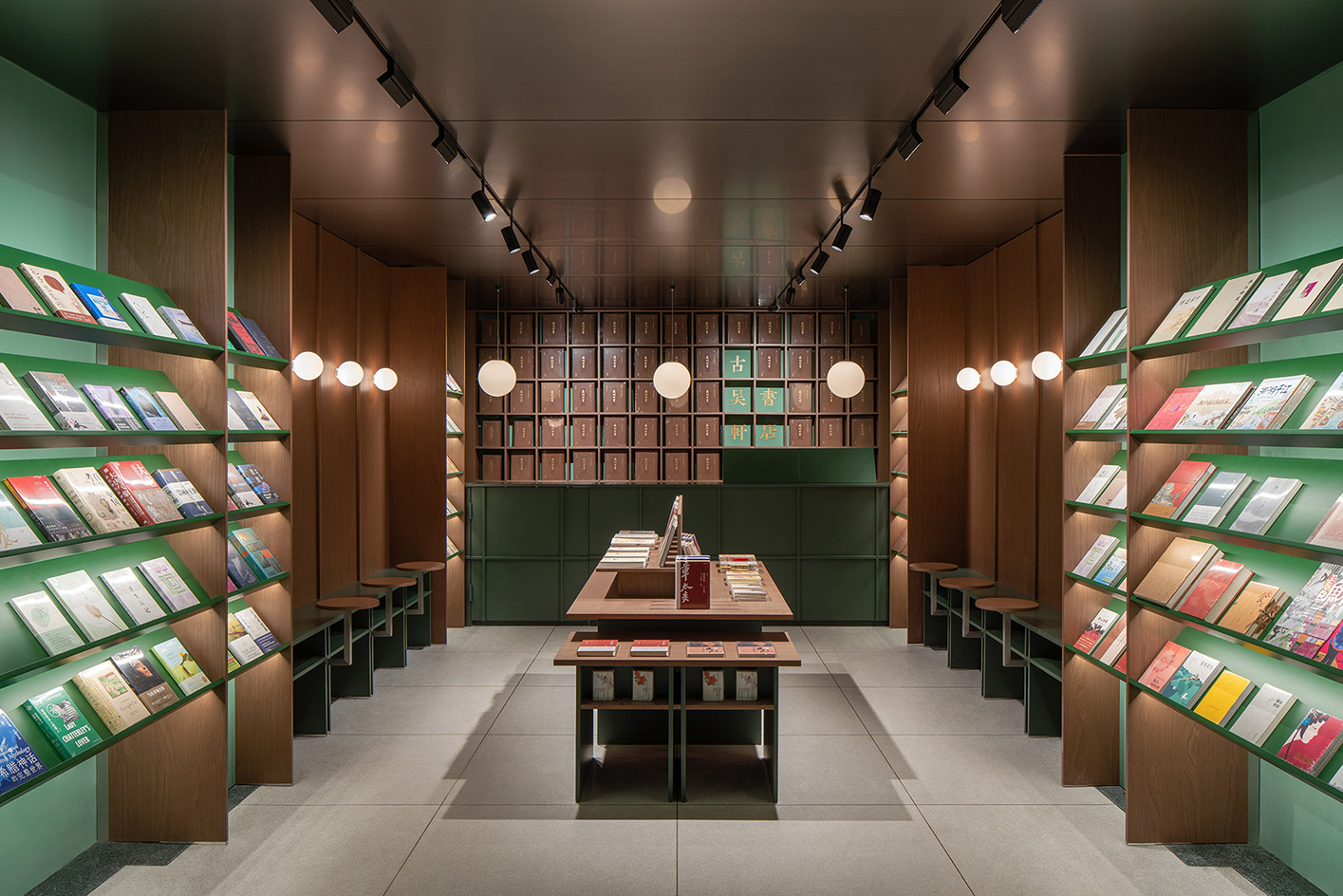
'Renovation is not simply about blending into the old. Instead, it involves the fusion of the old and the new to imbue this long-standing house a new language, from design to functionality and the experience it offers to visitors. We hope the story of Zhang Taiyan and his house do not stop in that specific time period but to continue, with the new memory and language, to carry forward,' Bao writes.
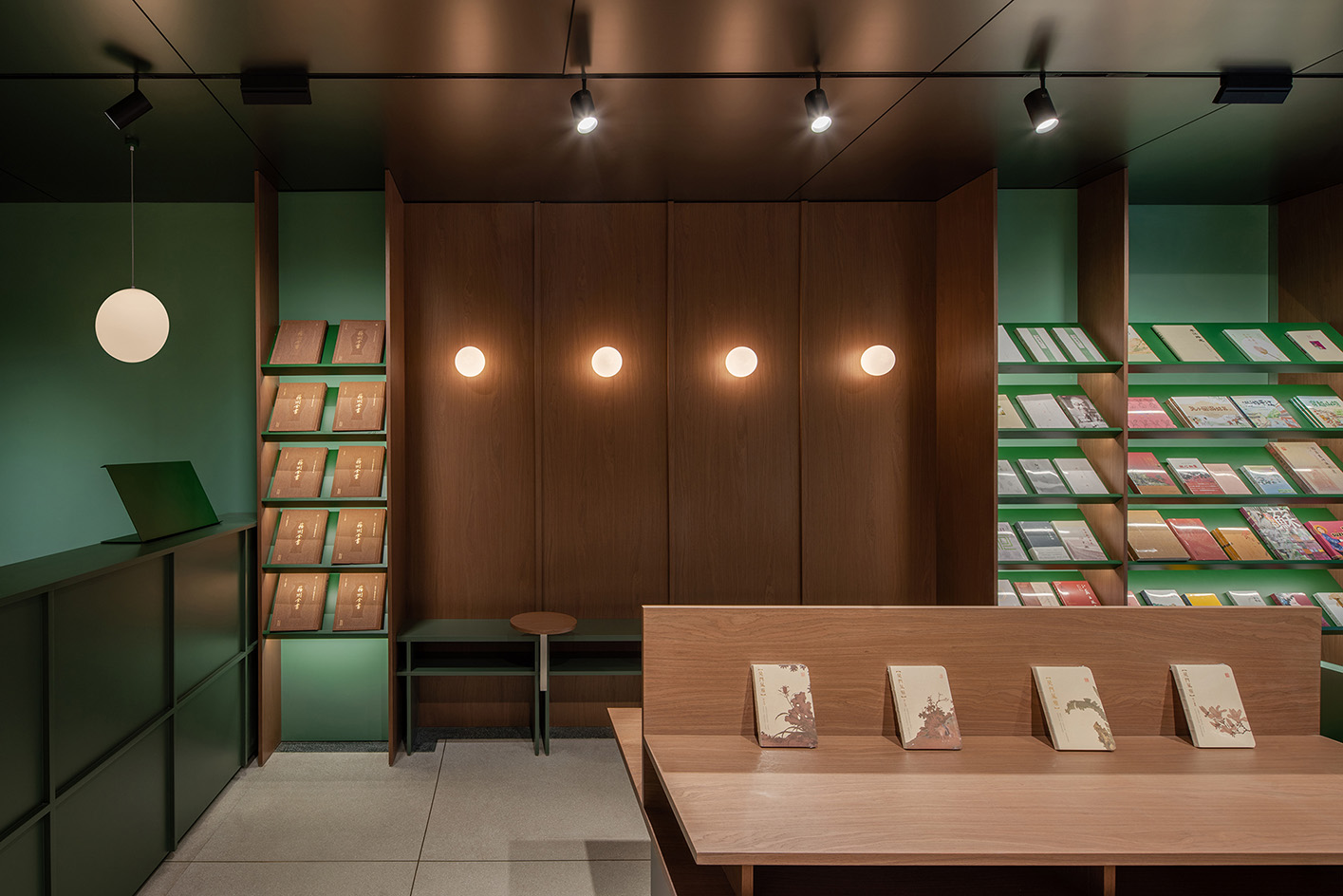
The architects had to respect the building's existing fabric (it has a protected heritage status), and worked on both repairing previously damaged areas, and opening up spaces to bring natural light in, and ensuring contemporary needs are met.
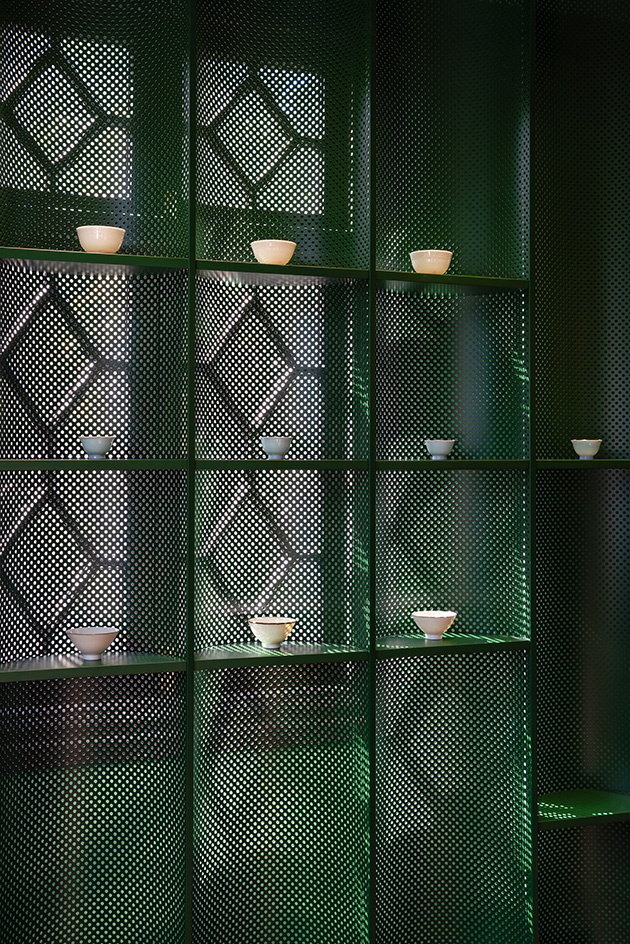
'The goal was to integrate the overall functionality of the Zhang Garden and create a comprehensive space that combines books, traditional culture, and the study of Chinese classics, to elevate visitors' experience through design interventions,' the architects write.
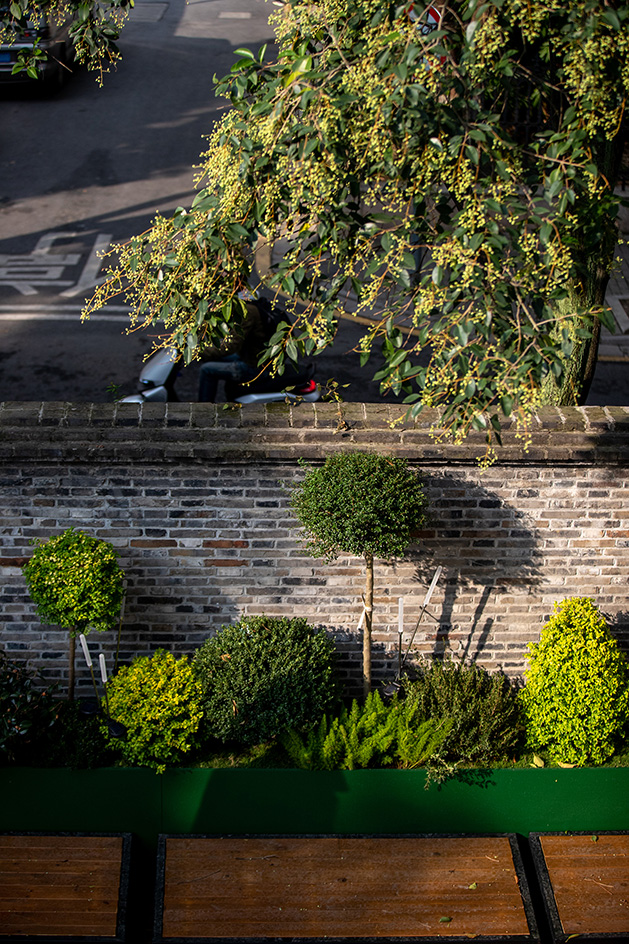
An interior defined by rich, dark colours; grids and floor-to-ceiling bookshelves; and curated views inside and out, promotes calm and a slowing down and appreciation of the environment's historic nature – as well as its connection with the urban green outdoors.
